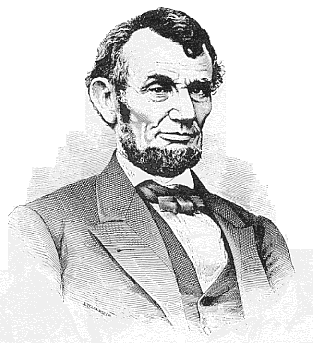President ignored Constitution

For The Madera Tribune President Abraham Lincoln from Punch Magazine in 1865.
John Merryman slept soundly on the night of May 25, 1861, seemingly secure in his rights as an American citizen. Little did the highly respected Maryland planter suspect that at two o’clock that very morning, he would be jerked out of his bed by a group of soldiers and hauled off to jail without being charged with any crime.
The day after his arrest, Merryman, through his lawyer, filed a request for a writ of Habeas Corpus with Roger B. Taney, Chief Justice of the Supreme court, which Taney promptly granted. Taney considered Merryman’s detainment unconstitutional, and he issued the writ demanding that General George Calwalader, the commander of Fort McHenry, bring the prisoner before him and explain why Merryman had been thrown into jail.
When the general received Taney’s order, he flatly refused to produce the prisoner, citing the fact that he was under orders from his superior officer, General Keim of Pennsylvania, to hold Merryman because he had shown a definite inclination toward sympathy for the Confederate States of America.
Justice Taney was thunderstruck! A citizen of the United States had been arrested without being charged with any crime. His captors had refused to show him any warrant or order by which he had been taken into custody, nor did they point to any specific violation of the laws of the United States for which he had been incarcerated. General Calwalader’s only response was to ignore Taney’s Writ of Habeas Corpus and claim that the President of the United States had taken it upon himself to suspend that particular provision of the Constitution.
Sensing that a crisis was brewing, Taney went right to the source of the problem — the president. The chief justice informed Abraham Lincoln that he had no right to suspend Habeas Corpus, and ordered the president to effect the release of John Merryman immediately.
If Taney’s order brought relief to Merryman, it was premature, for you see, in a combative time in American history, President Lincoln ignored the directive from Taney. Like Andrew Jackson had done once before, Lincoln thumbed his nose at the judicial branch. Taney had issued his order; now he would have to enforce it.
Clearly, in the final analysis, the President would not stand on ceremony when the very existence of the United States was in danger, even if it meant ignoring certain provisions of the Constitution.
I wonder if President Donald J. Trump has ever heard this story.






